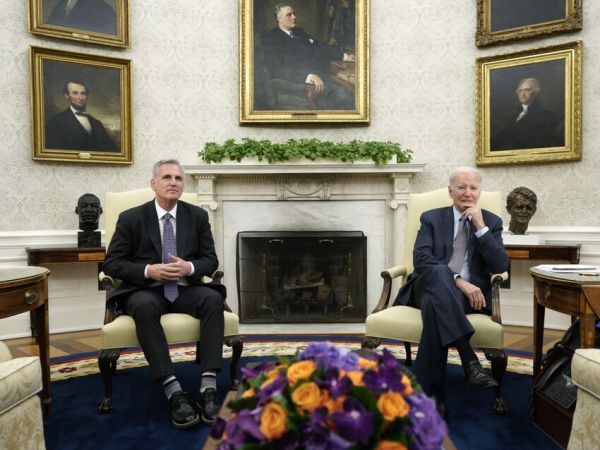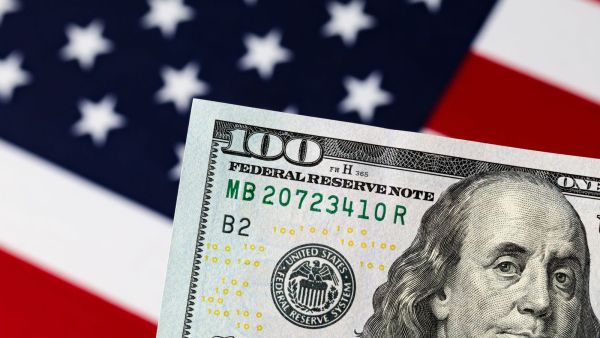US debt ceiling deal faces rocky road in Congress
ALBAWABA – A number of Republican lawmakers and officials in the United States (US) spoke out Monday against the US debt ceiling deal, which was struck by President Joe Biden and House of Representatives Speaker Kevin McCarthy Saturday.
Opposition by Republican officials signals a rocky road ahead, as the deal must pass by a divided Congress before June 5, the date set by the Treasury Department for when the US will run out of cash.
The deal is supposed to raise the US debt ceiling, which currently stands at $31.4 trillion.
Earlier this week, Biden and McCarthy reaffirmed that a US default is off the table.

They both reassured the public that the deal will pass Congress by June 4, news outlets reported.
However, Florida Governor Ron DeSantis, a candidate for the Republican 2024 presidential nomination, said the deal does not do enough to change the fiscal trajectory, Reuters reported.
"After this deal, our country will still be careening toward bankruptcy," he said on Fox News.
On the other hand, "this thing [the deal] will absolutely pass. There's no question about that," said Republican Representative Dusty Johnson, who said he had talked to dozens of fellow lawmakers.
On Tuesday, the House Rules Committee will take up the bill. This is the first step before a vote in the full House is held.
Though the panel is usually closely aligned with House leadership, McCarthy was forced to include some skeptical conservatives as a price for winning the speaker's gavel.
One of those conservatives, Representative Chip Roy, said on Tuesday he did not support the bill.
"It's not a good deal. Some $4 trillion in debt for - at best - a two-year spending freeze and no serious substantive policy reforms," Roy wrote on Twitter, Reuters reported.
In the Senate, Republican Mike Lee also came out against the bill, which could point to a difficult vote there, where any member has the power to delay action for days.
Democrats control the Senate by 51-49, which is the next step, should the bill pass the House.
US Debt ceiling deal temporary fix, not a solution: Republicans
The 99-page bill would suspend the debt limit through Jan. 1, 2025, allowing lawmakers to set aside the politically risky issue until after the November 2024 presidential election, according to Reuters.
But Republicans have argued that steep spending cuts are necessary to curb the growth of the national debt, Reuters highlighted.
At $31.4 trillion, it is roughly equal to the annual output of the economy.
Interest payments on the current levels of debt are projected to overtake growth in the budget, as America’s ageing population pushes up health and retirement costs, according to government forecasts.
The bipartisan Biden-McCarthy deal does not address these issues, Reuters reported.
The deal would not do anything to rein in those fast-growing health and retirement programs.
Most of the savings would come by capping spending on domestic programs like housing, border control, scientific research and other forms of "discretionary" spending, the news agency said. Whereas military spending would be allowed to increase over the next two years.







